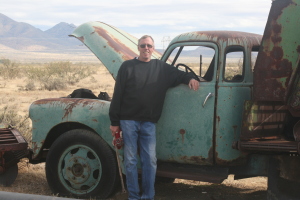I skateboarded down to the park to find a place to journal. In about 5 seconds of tiny wheels rolling on rocky asphalt, I almost decided to go back home. The only place I’d ever boarded is on the smooth concrete of San Jose State University. This was the complete opposite.
I forced myself to ride through my own reluctance, because something within me kept saying that 8 minutes of bumps would be worth the ride.
Once I arrived at the park, I slowed down and looked for a place to sit and write.
I found myself drawn to the place I usually avoid—the baseball field park bench. As I sat on its cold, aluminum surface, I took in the sun’s heat and the flood of unwanted memories.
It’s been three years since I’ve had the strength or courage to revisit the bench. 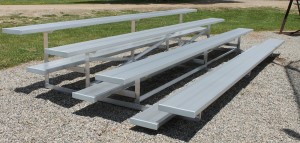
Three years ago, I sat on the bench with the person I fell in love with, who’d eventually leave me. We had been together for less than two months, and in a few days we were to separate for college. Him to LA and I to Spokane. As we sat, I tried to hold on to him because, even then, I was always afraid that “we” would end.
The bench was an evocative object that seized my mind into the past. I had been told too many times that I wasn’t “supposed” to return to those thoughts. “To reminisce is only to miss something that doesn’t exist anymore.”
But in the end, I deliberately chose to sit there. I sat exactly where we did back then, accepted that this time I was alone, and wrote. Writing required me to reflect, to remember and I was forced to verbalize the thoughts that plagued me.
With my pen, I scribbled, “There are three places that for some reason, I’m oddly rooted to. This park bench, an ATM, and a rose garden.” Chewing on the cap of the pen, I realized that these three every-day objects in every-day areas had a hold on my attention. I struggled to keep up with the memories and insights that were suddenly clear as I captured my thoughts in the hardbound journal..
On the park bench, we shared a kiss while someone awkwardly passed by. After we noticed their disgusted glare, we eventually laughed off our embarrassment. He looked me in the eyes then and said, “Oh well,” and simply held me. He didn’t care about the world around us. He cared about me.
At the ATM, I stood with him while he withdrew money. He followed through with the chivalrous expectation to pay for me, even though at the time he wasn’t financially stable. I didn’t stop him, but it was the first time I saw myself as more of a burden than a blessing in his life.
At the rose garden, we had celebrated our first month as a couple. When we were leaving, we crossed paths with a little old Hispanic lady who, at my goodbye to her, laughed and said, “There are no such things as goodbye! Only ‘see you later!’” For the first time in my life, I felt comfort at a departure.
I looked around again. Children were scattered throughout the park running, biking, and squealing with delight at whatever tickled their attention. In the distance, a Hispanic family danced salsa with one another to the faint tune escaping their tiny radio. I moved the skateboard back and forth under my feet and recognized that the sun was lowering and it was becoming colder.
But I continued to write. Returning to, sitting, and writing on this park bench forced me to remember for the first time what had actually happened. Once that memory was viewed in full, I watched it all play out through a wiser pair of eyes.
As I sat recalling these vivid memories, I imagined that my current self, with knowing eyes, sat next to my past self.
“You know…one day you’ll return to this park bench alone,” I tell her. ”You’ll come back and there will be a rush of pain like a baseball at full speed.”
My past self cringes at the corniness and unpleasant knowledge. “If it will hurt, why come back?”
“Because,” I begin carefully, “Although it hurts, you’ll see that things always come full circle. From here, I can see that our biggest fear came true. We loved, we lost. But you’ll keep moving forward. You’ll fall in love again, you’ll get hurt again. You’ll continue on, and then you’ll wind up here.”
We both sigh deeply, aware that truth is never an easy burden to bear.
“Coming back here will not be like regressing to your old thoughts.” I continue with an experienced voice, “It will hurt, but you’ll see that everything that has happened molds you into who you’re meant to be.”
My past self scoffs. “And then I’ll have to do it again, right? Return to places I don’t want to go back to?”
I push a bit more. “You’re right. There will be many benches that we’ll have to return to. Benchmarks of experience. But look– this isn’t so bad.”
The sun was setting, and my mind was tired. I picked up my skateboard and started towards home. Though the asphalt ground remained the same, bumpy and jarring but all I could think was, “It feels a little easier now.”
*****
Sarah Michelle Cruz is an incoming senior at Whitworth University. She is a psychology and English Writing major, with a Chinese minor. She spends her free time mostly making music, writing, watching Filipino soap operas, or eating cheap but delicious international cuisines with friends. She is in the editing process of her first novel, and is currently writing a second book called, “At the End of the World.” She hopes to inspire others and help people reclaim their own stories through arts and writing.
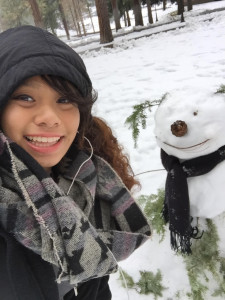

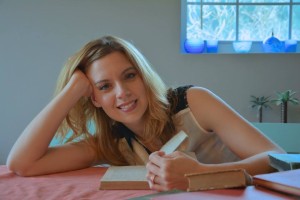
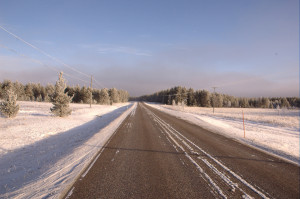
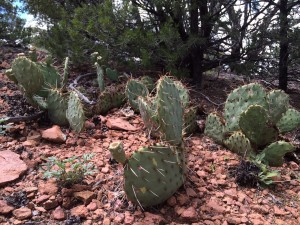
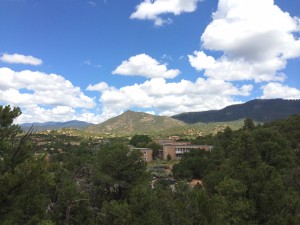
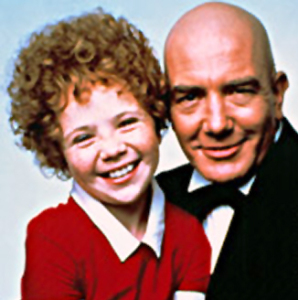 g for families and forced into fruitless hard labor by a nasty overseer, Ms Hannigan, who sloppily drinks gin in her bathtub. At the end, Daddy Warbucks steps in to love and care for Annie and all is well. (Or so I remember.)
g for families and forced into fruitless hard labor by a nasty overseer, Ms Hannigan, who sloppily drinks gin in her bathtub. At the end, Daddy Warbucks steps in to love and care for Annie and all is well. (Or so I remember.)